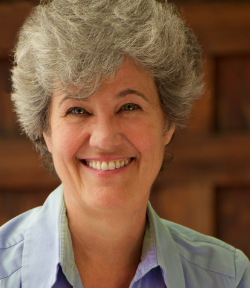
Photo credit: Diane Alancraig Photography
We find ourselves in a very tight spot. I doubt there has ever been a time, since ICSOM was founded 58 years ago, that our orchestras have been in a more precarious situation. The coronavirus pandemic has stripped away our livelihoods and our way of life. It has taken the lives of tens of thousands of Americans and it has devastated our economy. We are hanging on by our fingernails as our American democracy degenerates into autocracy.
It’s hard to imagine that just four months ago we were performing concerts in our halls and practicing repertoire for the next week. Now we find ourselves exiled and isolated, locked out of our halls, trying to find ways to connect with our friends, our colleagues, our audiences, and our music.
But the virus has also, in its sudden, brutal devastation, shone a harsh and compelling light on the many social and economic disparities that exist in our country. The pandemic has forced us to stop. To stop our frenetic, distracted, rat race existence and really look at what we are doing—to clearly see the society we have created. The disproportionate deaths of people of color has made manifest the economic disparity, environmental racism, violence, and oppression that our capitalist economy has created and that our predominantly Black and Brown citizens suffer under every day.
We are experiencing an historic moment where hundreds of thousands of people across the globe are taking to the streets to demonstrate against that oppression. We are also experiencing a long overdue reckoning of our nation’s history, begotten in genocide and slavery; the continuing legacy of that violence is dramatically on display in our streets today.
We are still grappling with the aftermath of that history. It remains largely unrecognized and tacitly accepted as elements of bias and racism within our society. It plays out in the social and economic oppression and exclusion of our Black and Brown citizens. There is a critical need in our nation for truth and reconciliation, for truth and justice, for truth and equality. But there can be none of these without the truth first.
The pandemic has revealed the terrible failure of our health care system and the failure of our government—its inability to care for our democracy and its citizens. Our hyper-individualist, rapacious, capitalist ideology has led us to trample our fellow human beings and to poison our planet. We are unwittingly coming closer every day to the precipice of that apocalyptic ideology. This is a moment for humanity to rethink its destiny. The curtain is torn away by this crisis and we have an opportunity to see where we are headed.
This is a moment for our nation to do better. It is a moment for us to do better.
We will survive this crisis—our orchestras will survive if we stand together and defend them. In the book On Tyranny: Twenty Lessons from the Twentieth Century, author and Yale professor of history, Timothy Snyder, tells us how.
Lesson #2, Defend Institutions: “Institutions do not protect themselves. They fall, one after another, unless each is defended from the beginning. So chose an institution you care about—a court, a newspaper, a law, a labor union—and take its side.”
Your orchestra is your institution and the American Federation of Musicians is your labor union. We need every musician to take action now—speak up, speak out, connect with your donors and audience. Write to your congressional representatives. Help out in your community. Many of your orchestras already have social media accounts—use them to start a food drive in your neighborhood, to organize porch concerts, to raise money for a good cause. Be visible, do good.
Lesson #13, Practice Corporeal Politics: “POWER wants your body softening in a chair and your emotions dissipating on the screen. Get outside. Put your body in unfamiliar places with unfamiliar people. Make new friends and march with them.”
For now, let it be socially distanced or virtually—be safe! But none of us can afford to stand on the sidelines. We must act now to save ourselves and our orchestras. Contribute your voice to your orchestra and to your community. Stand up and stand out. Set a visible example in your community to preserve your orchestra for future generations.
This crisis will pass. Our orchestras will survive. We will survive because we have dedicated our entire lives to our music. We connect humans with their humanity. We ignite hearts, we unite spirits, we speak truth and beauty. And we know in every fiber of our being what is just and fair because we seek it every day in our art.
We have each given our lives to improving the lives of others: to our students, our colleagues, our audiences, and our orchestra. We will stand together and have each other’s backs. We will find the path together, with our orchestras and with our communities—the path that heals our nation and restores our orchestras and the music we create.





